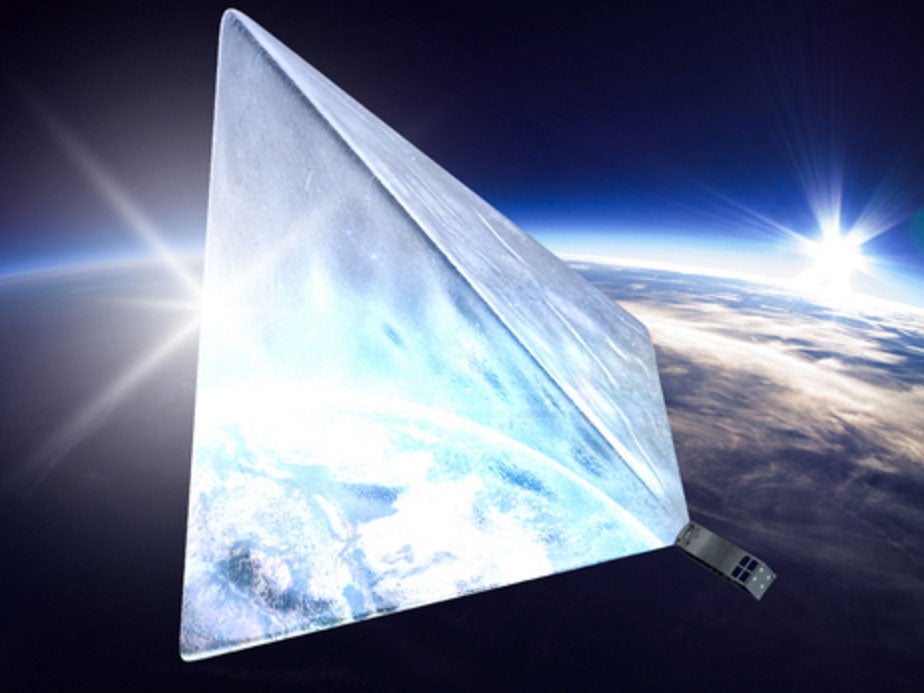Planned Russian satellite would be the 'brightest star in the sky'
The proposed 'Mayak' satellite would have a huge pyramid-shaped reflector to make it easily visible in the night sky

Your support helps us to tell the story
From reproductive rights to climate change to Big Tech, The Independent is on the ground when the story is developing. Whether it's investigating the financials of Elon Musk's pro-Trump PAC or producing our latest documentary, 'The A Word', which shines a light on the American women fighting for reproductive rights, we know how important it is to parse out the facts from the messaging.
At such a critical moment in US history, we need reporters on the ground. Your donation allows us to keep sending journalists to speak to both sides of the story.
The Independent is trusted by Americans across the entire political spectrum. And unlike many other quality news outlets, we choose not to lock Americans out of our reporting and analysis with paywalls. We believe quality journalism should be available to everyone, paid for by those who can afford it.
Your support makes all the difference.A group of Russian engineers has raised over £17,000 to launch a reflective satellite which would be one of the brightest objects in the night sky.
The team behind the proposed 'Mayak' or 'Lighthouse' satellite have raised 1.8 million rubles (£17,500) at the time of writing, surpassing their initial goal of 1.5 million rubles.
These funds will go towards research and the development of prototypes, but the ultimate goal is to launch the satellite into orbit.
Once the small satellite is in space, it will unfurl a large, pyramid-shaped solar reflector, desigend to catch as many of the sun's rays as possible.
The team claim that it will turn the satellite into the brightest object in the night sky (after the Moon), and will serve to remind the world "who was the first in space" - that's Russia, if you were wondering.
The enigneers have apparently been in talks with Russian space agency Roscosmos to place the Mayak satellite aboard a Soyuz-2 rocket which is scheduled to take off in mid-2016 - however, it's not clear whether they'll be able to meet this tough deadline.
Contributors to the crowdfunding campaign on Russian website Boomstarter can get a series of perks, depending on how much they give - those who donate 100,000 rubles (£970) get a Mayak-branded telescope, while a 300,000 ruble (£2,900) contribution is rewarded with an invite to Baikonur Cosmodrome in Kazakhstan to watch the launch live.
Although one of its aims is to remind the world of Russia's dominance of space, the team also hope it will help get young people enthusiastic about science and space exploration.
By using an app, people will be able to track the orbit of the satellite and spot it as it passes overhead. It's also hoped that the Mayak's experimental braking equipment could be an example to other scientists working to solve the problem of space junk.
Join our commenting forum
Join thought-provoking conversations, follow other Independent readers and see their replies
Comments